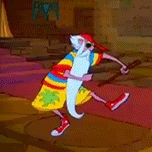- cross-posted to:
- marxism@hexbear.net
- cross-posted to:
- marxism@hexbear.net
I’ve just finished reading “How Marxism Works” by Chris Harman, as part of Prolewiki’s Absolute Beginner Reading List, and I wanted people’s thoughts on its section about Marxism and Feminism. This edition is from the year 2000, and this section feels like the weakest section in the entire pamphlet.
It feels like a very surface-level dive into the topic, and I’m wondering if I’m simply picking up on a lack of familiarity by the author. I will admit, as well, that this is a weak topic for myself. I know that there were Bolshevik women who had to advocate for their inclusion in the state after the October Revolution. Their admission led to huge social progress and amenities for working-class women, but there is no mention of them by name in this section. There is no mention of intersectionality, either, from the ‘Feminist’ side of the section, but lots of focus on the “separatist ideas” of Feminism. No mention of works such as Angela Davis’s Women, Race, & Class (which is on my reading list).
Queer Marxism, Feminist Marxism, often feel like an under discussed subsection of Marxist thought (to me anyway, as a cishet man, who could probably do better about seeking this information out). I have to imagine that, being a woman, being queer, being non-white, and looking at Marxism and its focus on class can feel like an alienating experience to some. To have your struggles collapsed and folded together into the “Class Struggle” with no real mention or notion of what life will look like for you and your intersection with society at large after the elimination of the class society must feel like someone telling you to “take it on faith” that things will improve for you. That somehow, in a post capitalist state, the biases and prejudices are simply washed away from the minds of the masses. You would need to take a step further, to study the history of places like the Soviet Union and its efforts in decolonization to get an idea of what that looks like. This could also be my own shallowness showing regarding theory, however.
So, what are your thoughts? What are some historical perspectives I should be seeking out that flesh out this section? What are some works of Theory within the realms of Women’s Liberation, Black Liberation, and Queer Liberation I should consume to expand the foundation for my world view?
Thanks!


I have to imagine that the idea is that what is worthwhile about feminism (since feminism as-received today is liberal feminism) must be entirely incorporated into revolutionary socialism rather than treated as its own special interest group, making “feminism” as its own movement worse than redundant, but I didn’t read it so idk. Luxemburg talks about it here when she defends being a socialist in general and not a special interest group member. I do think the liberal way of handling identity, by not viewing it as the intersection of class oppression, has some potential for fracturing people into different camps that aren’t adequately interested in broad solidarity.
CC @RedWizard ig
Yeah I agree with that. The care taken in the section of pretty lacking. The section isn’t long, give it a read. You’ll find it lacks even a mention of Luxemburg or her ideas. Before reading it I was aware of her contributions to the socialist movement, so I was surprised to not see her mentioned in this section.